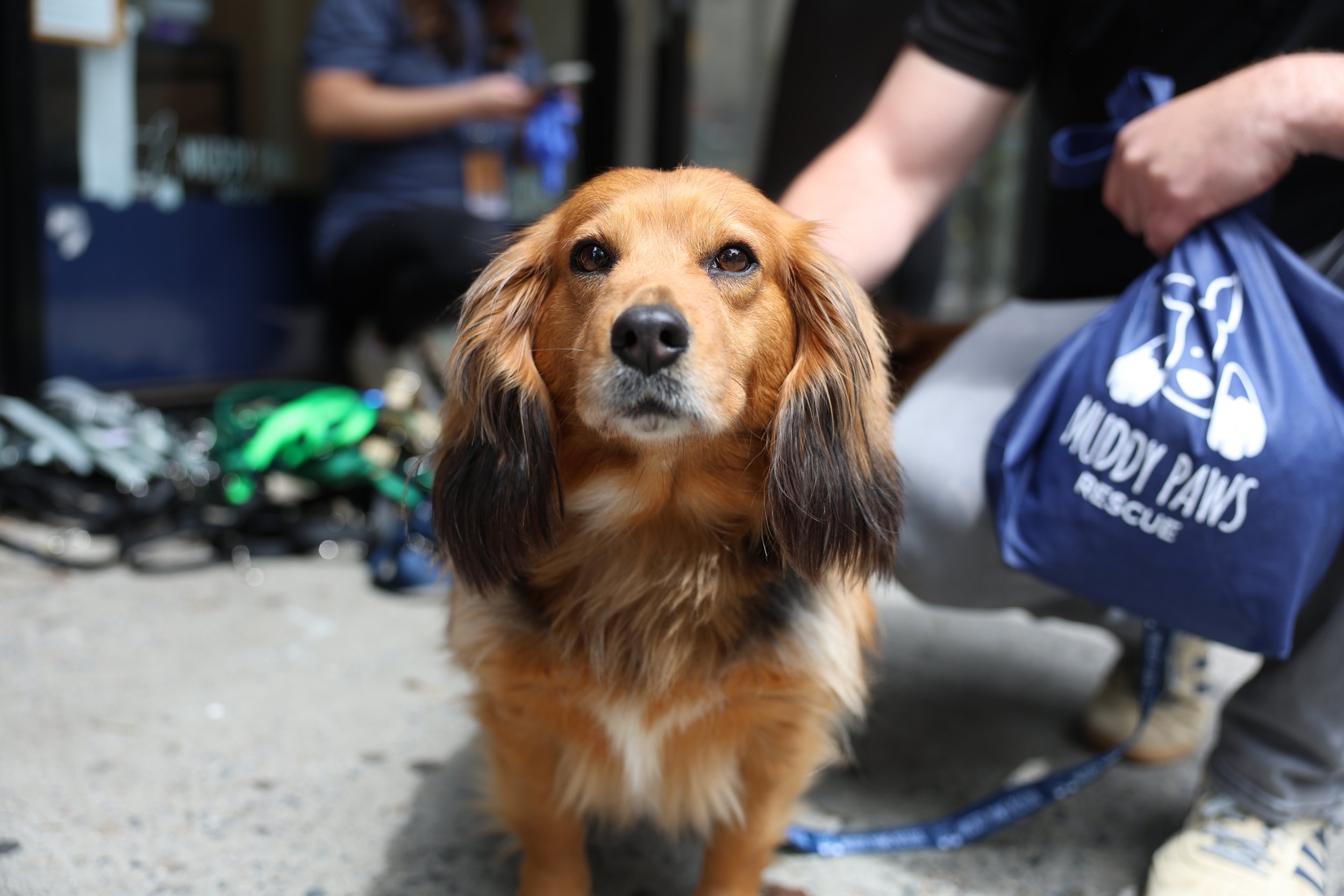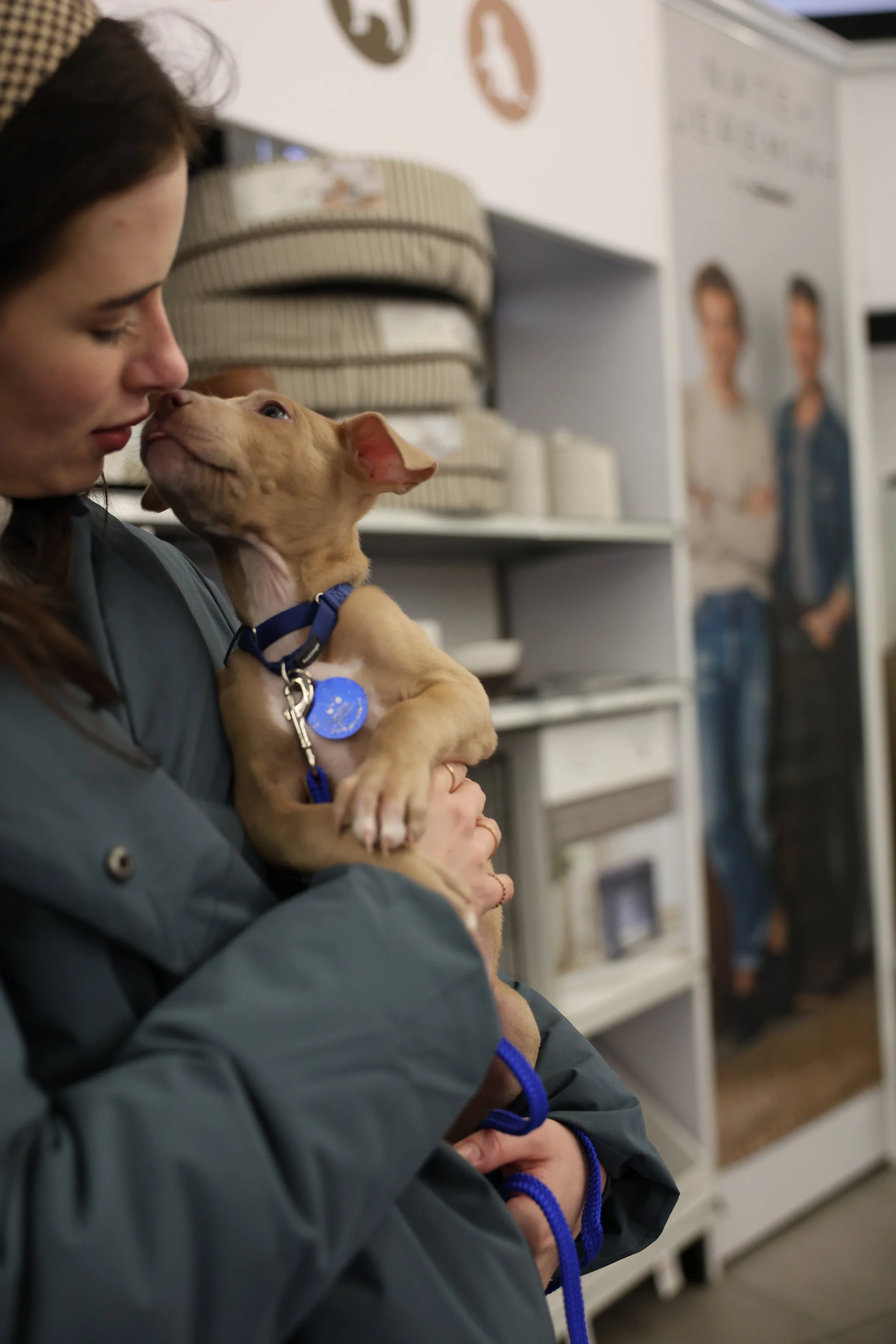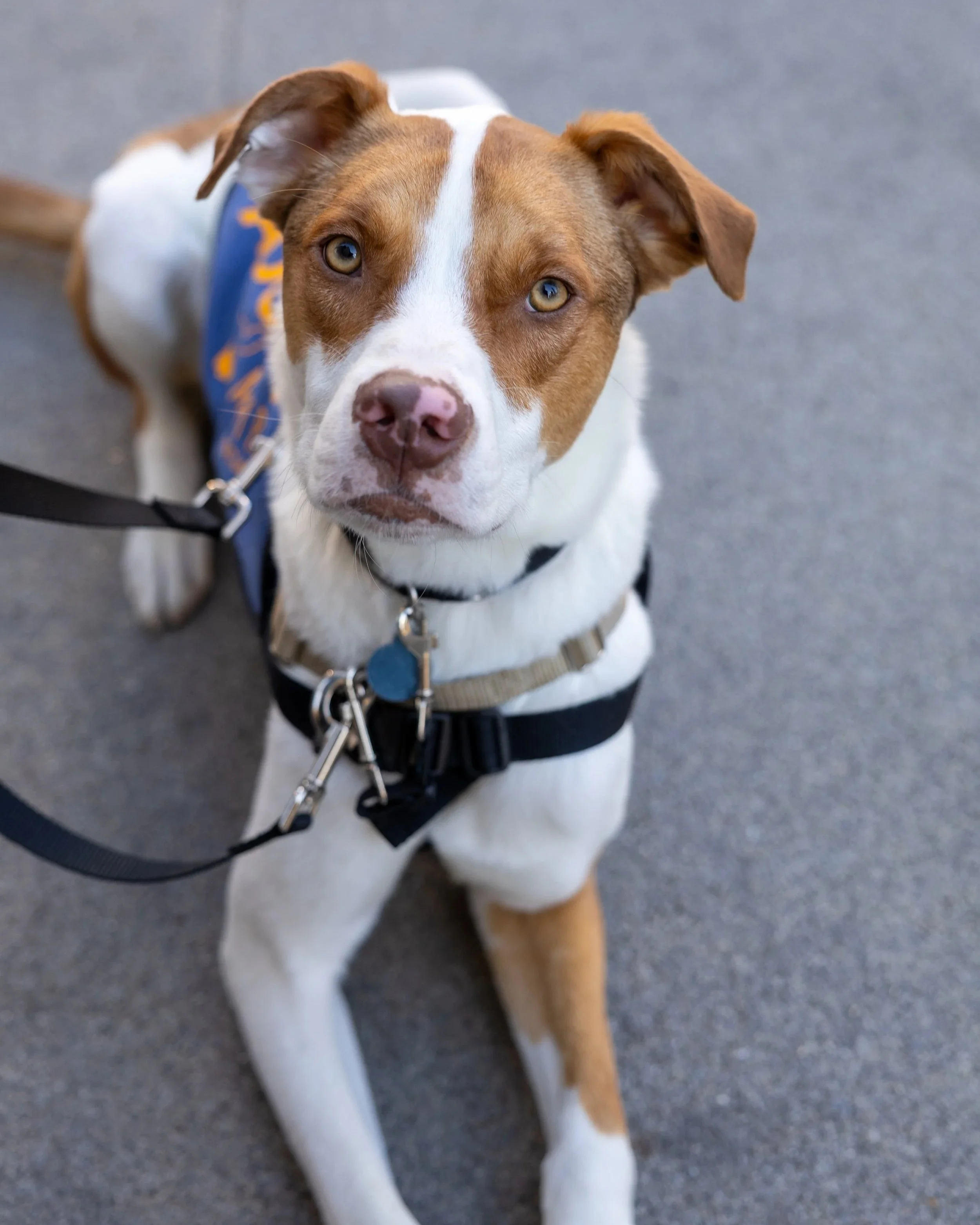What to expect at your pre-scheduled meeting
STEP 1: Check In
When you arrive at the adoption event, find the Adopter Check In table. Let a Muddy Paws Rescue representative know that you’re fully registered and whether you have a meeting scheduled. Please bring a state-issued photo ID and be prepared to show your registration email.
step 2: Meet your matchmaker
Once you are checked in, you’ll be introduced to a Matchmaker who knows our pups best. They will help determine which ones could be a good fit!
step 3: Meet your pup
Your Matchmaker will facilitate your meeting, answer your questions and prepare you for 1:1 time with an appropriate pup. Please note that the dogs in our care have made multiple transitions since their arrival to NYC, and it often takes 2-4 weeks for a dog to acclimate to a new home.
step 4: FINALIZe
If you decide to adopt, your Adoption Finalizer will review the dog’s medical records, the adoption contract and then complete the checkout process with you. Congratulations!
What to buy for your new dog
We frequently hold our events near pet supply stores to make it easy for you to purchase any necessary supplies. However, if you want to prepare ahead of time, you can use this shopping list as a guide.
We’ve also included some in-depth information below to answer some FAQs:
CRATE
All of our foster dogs are crated when left alone. To make the transition from one home to another as seamless as possible, we recommend purchasing a crate for your new pup. The crate will provide a safe space for your dog, and it will also prevent your dog from destroying your belongings and eating potentially harmful items. The crate is extremely helpful for house training as well! Just be sure that your crate is large enough so that you dog can stand up, turn around and extend their legs. However, be sure it is not too big. Otherwise you may notice your dog having accidents in the crate. Once your dog has settled into their new home, you may choose to continue crating, keeping the crate door open or removing the crate altogether.
PEE PADS
If you are adopting a puppy who is not fully vaccinated and cannot yet walk outdoors, be sure to stock up on pee pads for training!
FOOD
We are always happy to share the type of food that your pup was eating in foster care so that you can keep their diet consistent as they transition into a new home. Just remember that if you change foods, your pup may get an upset stomach so it is important to slowly transition them. Once you’ve adopted, we recommend consulting your vet for their recommendation on what to feed your pup as there are a variety of options and they can offer their best professional opinion.
LEASH, HARNESSES & COLLARS
All MPR dogs wear martingale collars in foster care because they are effective for training and safe. The martingale collar and leash are included in your adoption fee and will go home with the dog during the adoption handoff. If you decide to purchase a harness like a Freedom Harness, be sure to back it up with a carabiner to ensure that your dog is unable to get loose. We also highly encourage our adopters to purchase standard nylon leashes instead of retractable leashes as they can be dangerous, especially in NYC.
Important things to consider
PREPARE YOUR HOME
Be sure to dog-proof your home regardless of how old the dog may be. Be sure to pick up any loose items, remove anything that may be in reach on countertops and put away any valuables.
RESEARCH VETERINARIANS
We always recommend that adopters visit a veterinarian within 1-2 weeks of adoption. This will help you establish a relationship with your vet and it will provide a baseline for your dog’s health.
RESEARCH DOG TRAINERS
Regardless of your dog’s temperament or age, set up an appointment with a trainer. Trainers can help you set a foundation for your dog, and training sessions are a great way to help you bond with your new dog. It is crucial for puppies in particular to start off on the right foot with proper socialization and training to prepare them for adulthood. It is much easier to work on a behavior from the start than to address it months or years in the future. Take a look at the trainers we work with to get started!
Need Behavioral Tips?
If you have basic behavioral questions about your pet, such as excessive barking, crate training, house soiling, etc. take a look at our behavior resources! Animal Rescue League of Boston’s Free Pet Behavior Helpline is also a great resource for basic questions - behaviorhelpline@arlboston.org, (617) 226-5666
Financial Assistance Programs for Adopters
Unfortunately, Muddy Paws is generally unable to fund veterinary care for our adopted pups. However, we understand the costs of providing needed or emergency care for your pet. Below is a listing of organizations which may be able to assist.
Please remember, each organization has its own rules and requirements. You will need to determine if you qualify for assistance. This list is also not comprehensive. With some additional research, you might find other organizations that can provide you with the financial assistance you need.
Frankie’s Friends: Frankie’s Friends Fund provides financial assistance grants to family owned pets in need of lifesaving emergency or specialty veterinary care whose caregivers cannot afford the full cost of treatment.
The Pet Fund: Provides financial assistance to owners of domestic animals in the U.S. who need veterinary care.
Brown Dog Foundation: Offers pet owners in temporary financial crisis an alternative to euthanasia when their pet faces a treatable, life-threatening condition in order to restore the quality of life for pet and owner.
Save U.S. Pets Foundation (NJ only): The Foundation is dedicated to ensuring that economic euthanasia is not the only choice for responsible pet owner's with proven financial hardship when their furry family member needs lifesaving veterinary treatment. They support eligible grant requests for financial access to medical treatment of pets as submitted by participating veterinarians.







